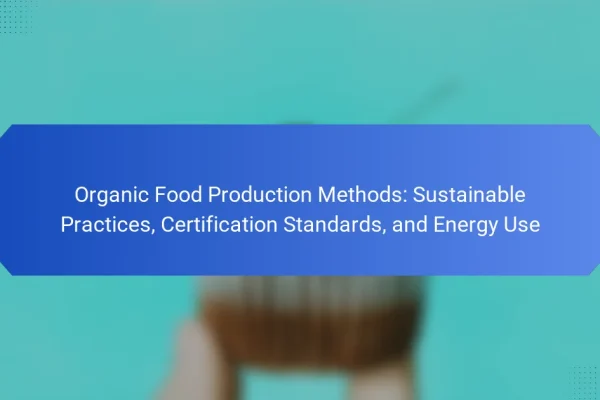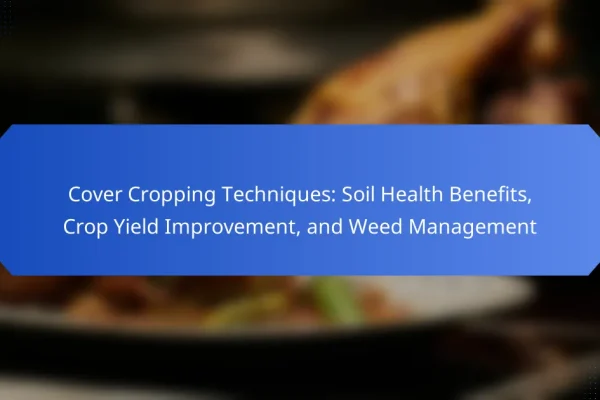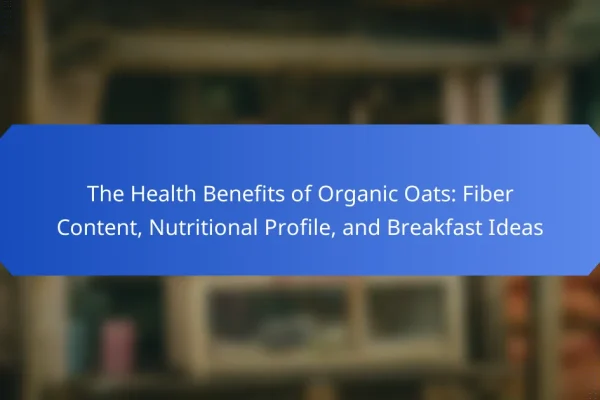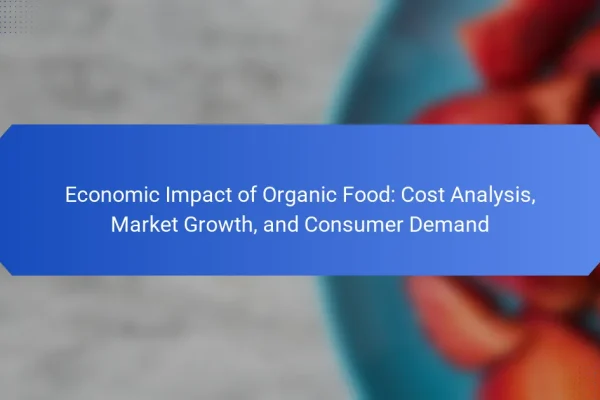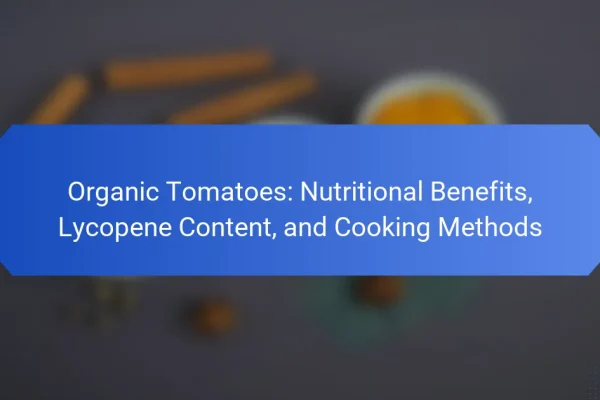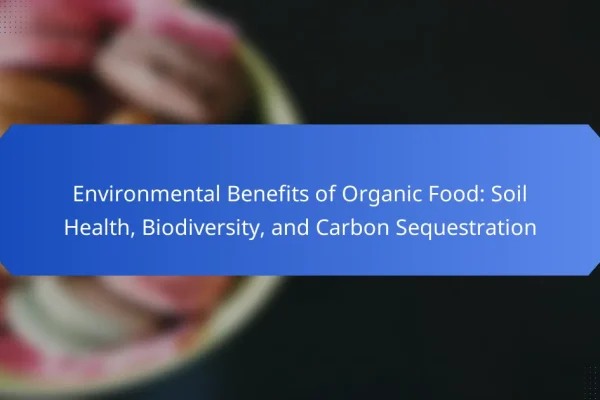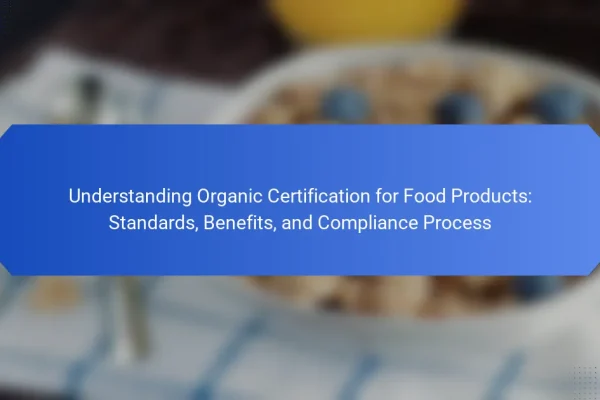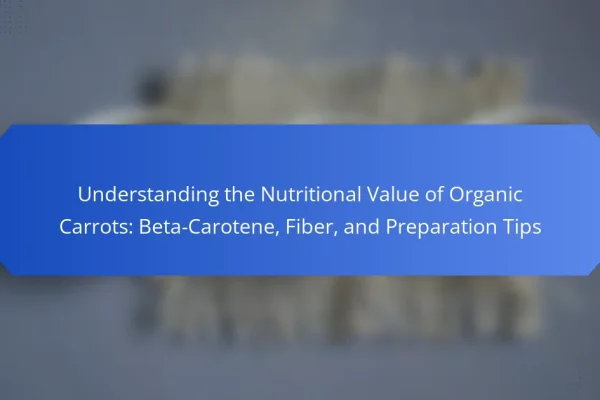
Understanding the Nutritional Value of Organic Carrots: Beta-Carotene, Fiber, and Preparation Tips
Organic carrots are a nutritious vegetable, low in calories and rich in essential nutrients, including beta-carotene, fiber, vitamins A, K, and C, as well as potassium and antioxidants. A one-cup serving of chopped organic carrots contains approximately 52 calories, 12 grams of carbohydrates, and 1.4 grams of fiber. The article explores the best preparation methods…
